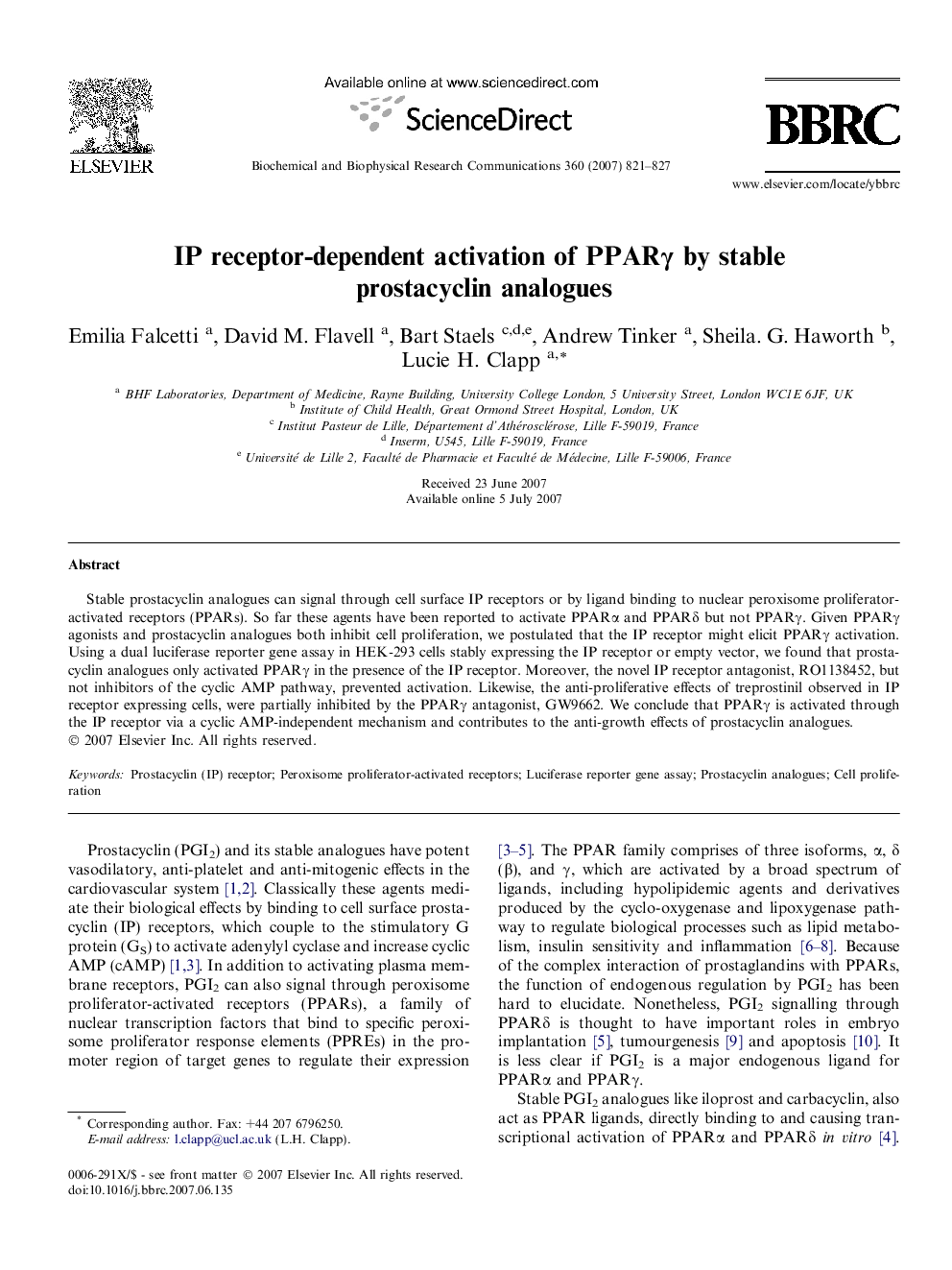| Article ID | Journal | Published Year | Pages | File Type |
|---|---|---|---|---|
| 1936745 | Biochemical and Biophysical Research Communications | 2007 | 7 Pages |
Stable prostacyclin analogues can signal through cell surface IP receptors or by ligand binding to nuclear peroxisome proliferator-activated receptors (PPARs). So far these agents have been reported to activate PPARα and PPARδ but not PPARγ. Given PPARγ agonists and prostacyclin analogues both inhibit cell proliferation, we postulated that the IP receptor might elicit PPARγ activation. Using a dual luciferase reporter gene assay in HEK-293 cells stably expressing the IP receptor or empty vector, we found that prostacyclin analogues only activated PPARγ in the presence of the IP receptor. Moreover, the novel IP receptor antagonist, RO1138452, but not inhibitors of the cyclic AMP pathway, prevented activation. Likewise, the anti-proliferative effects of treprostinil observed in IP receptor expressing cells, were partially inhibited by the PPARγ antagonist, GW9662. We conclude that PPARγ is activated through the IP receptor via a cyclic AMP-independent mechanism and contributes to the anti-growth effects of prostacyclin analogues.
